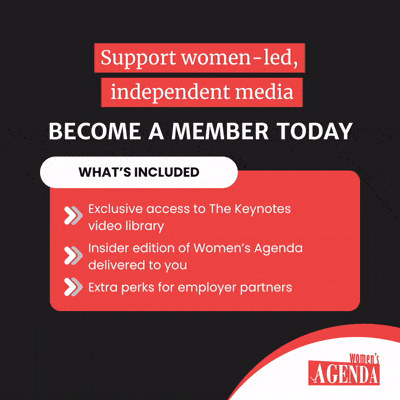
Last night, I had dinner with an old colleague of mine. We’ll call her Fay, and actually, she wasn’t just a colleague, she was also my first professional mentor. I hadn’t seen her for years (#thankyousocialmedia) so I’d been looking forward to catching up.
Fay was my line manager when I worked as a Junior Sales Manager at one of Australia’s largest organisations. She shared knowledge generously, encouraged me work towards my potential and supported me to advance my skills and career. She’d had years of success within the company, so I couldn’t help be in a little awe of her. I admired her company loyalty, and the passion and commitment she brought to her role.
So, back to last night. As we chatted over a few glasses of red, our attention turned to our professional lives. Fay wanted to know what I’d been up to for the last 15 years, and was very interested in the recent enquires I’d been getting about an emerging area of coaching. One that is recognised in the US and UK, but is still is relatively new in Australia – Maternity Transition Coaching.
Maternity coaching is a specialised area that falls under the executive coaching umbrella, in response to concerns that companies were losing their talented female employees before, during or after vital phases of the maternity leave transition.
Maternity coaching helps high-achieving women successfully negotiate and manage pregnancy and the return to work period of motherhood within in the context of their professional lives. It simultaneously teaches line managers to improve their confidence in handling the strategic planning, communication of best practice maternity transition.
Ideally the pregnant women has up to six coaching sessions (one hour each) at specified intervals before maternity leave starts, in order to support workload negotiation, expectations and any issues regarding productivity. Two shorter coaching sessions are conducted while the employee is on maternity leave (after the baby is born) to support the employee’s return to work preparation. Finally, up to six coaching sessions during the crucial return to work phase, in order to address assimilation issues once she is back in the workforce.
Concurrently, line managers attend their own coaching sessions to address managerial and strategic aspects of the maternity leave transition.
“Wow”, Fay said. “Wish they’d had that when I was pregnant. I gave up working after I became a mum. The whole thing was handled so badly, I didn’t want to go back.”
Wait. WHAT???
The loss of Fay to any company (let alone, one of Australia’s largest!) seemed incomprehensible. Her experience and expertise could not be easily replaced. She simply was, The Best.
It’s because of Fay that I’m writing this blog. Her story jolted me into action and I hope it does the same for those reading it.
As I’ve already mentioned, in Australia, maternity coaching is still relatively new. So here’s a snapshot of why it’s vital to the growth of any organisation, large or small, near or far:
1. It keeps female employees and their line managers engaged, active and productive before, during and after maternity leave. It also reduces the potential for organisational skill and performance deficits traditionally associated with employee maternity leave.
Most good managers understand that people invest in you when you invest in them. Studies show that 54% of women notice their careers are affected once they give maternity leave notification
Maternity coaching assists both the employee and line manager to make a smooth transition by keeping relevant parties involved, communicative and pro-active during vital transition stages.
2. It’s been proven to facilitate a faster return to full productivity after maternity leave ends. Less ‘down time’. Enough said.
3. It improves female retention rates and decreases company brain drain. Pardon the pun, but this really is a no brainer, and yet 33% of new mothers don’t return to work after giving birth.
Good employees are hard to find, so doesn’t it make sense that companies should do what they can to hang on to them? Overseas, Deutsche Bank and Ernst and Young are leading a growing number of companies offering maternity coaching in an effort to maintain their female executives.
4. It lowers the probability of potential recruitment and replacement costs. It costs 200-500% of an executive’s salary to hire and re-train a new recruit. Why would an organisations want to put themselves through such an arduous and expensive process if it could all be avoided?
5. It attracts and retains loyal, high-achieving women and mothers. Employees, especially at executive level, know what they’re worth in a competitive marketplace. So, in order for organisations to become employers of choice, they need to offer remuneration benefits that attract and keep their key employees.
Moreover, there’s no denying that women play a vital role in the workplace. As companies continue to develop and implement diversity and inclusion initiatives, maternity coaching is now an offering that gives companies a competitive edge.
Fay’s story is a cautionary tale to employers who need to develop policies and processes that guard against losing talented, passionate and experienced female employees.


